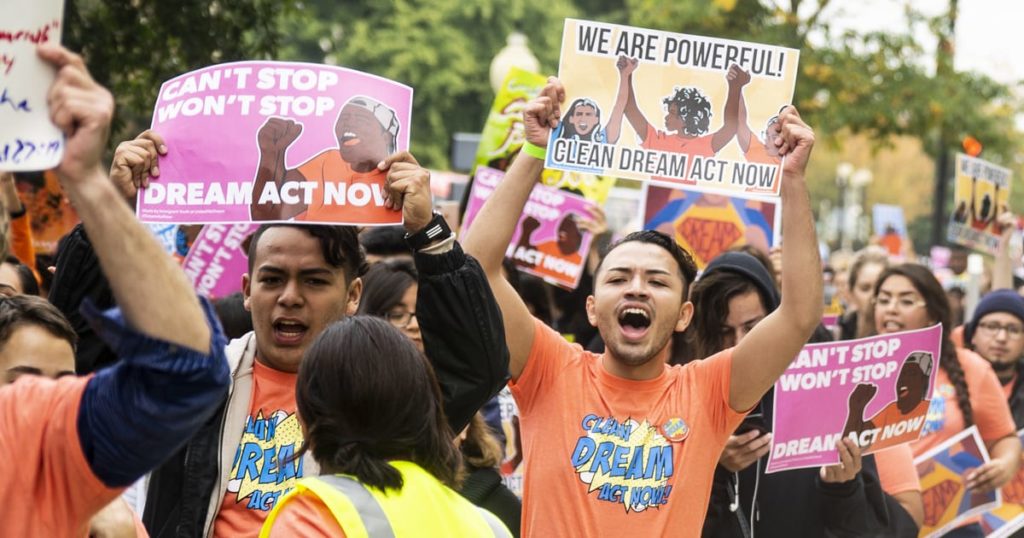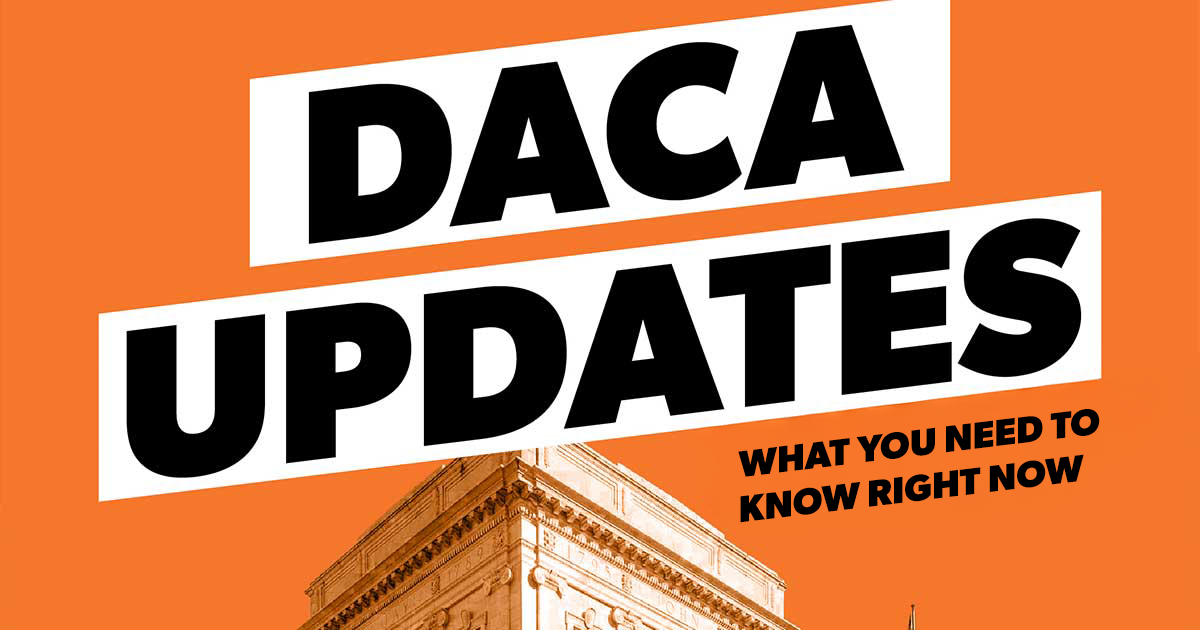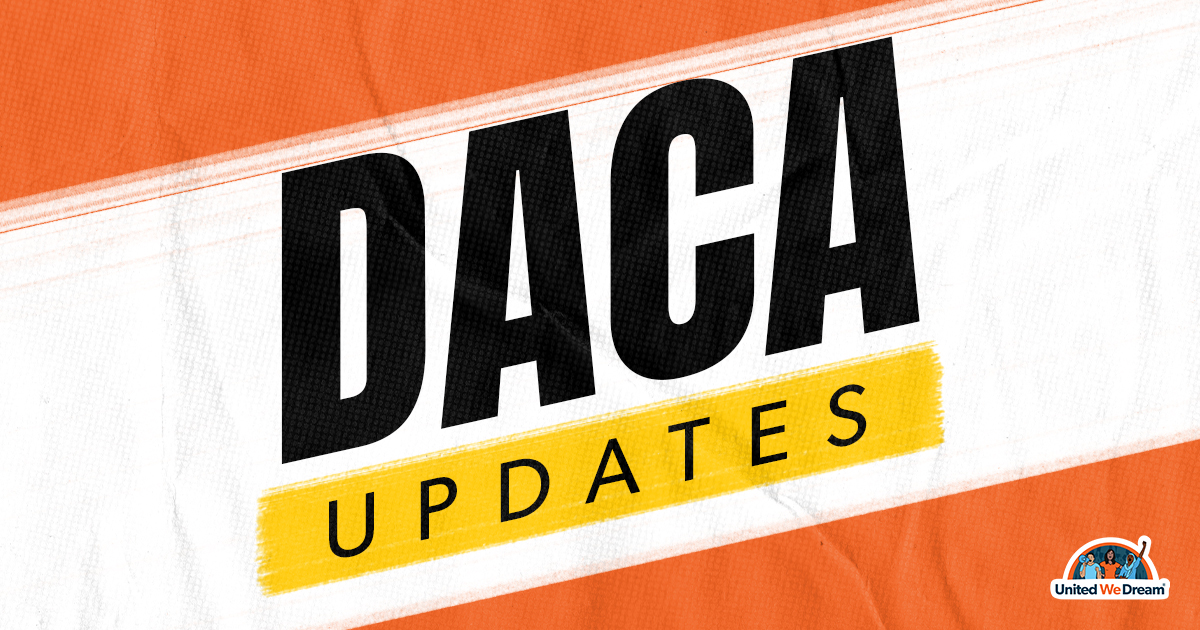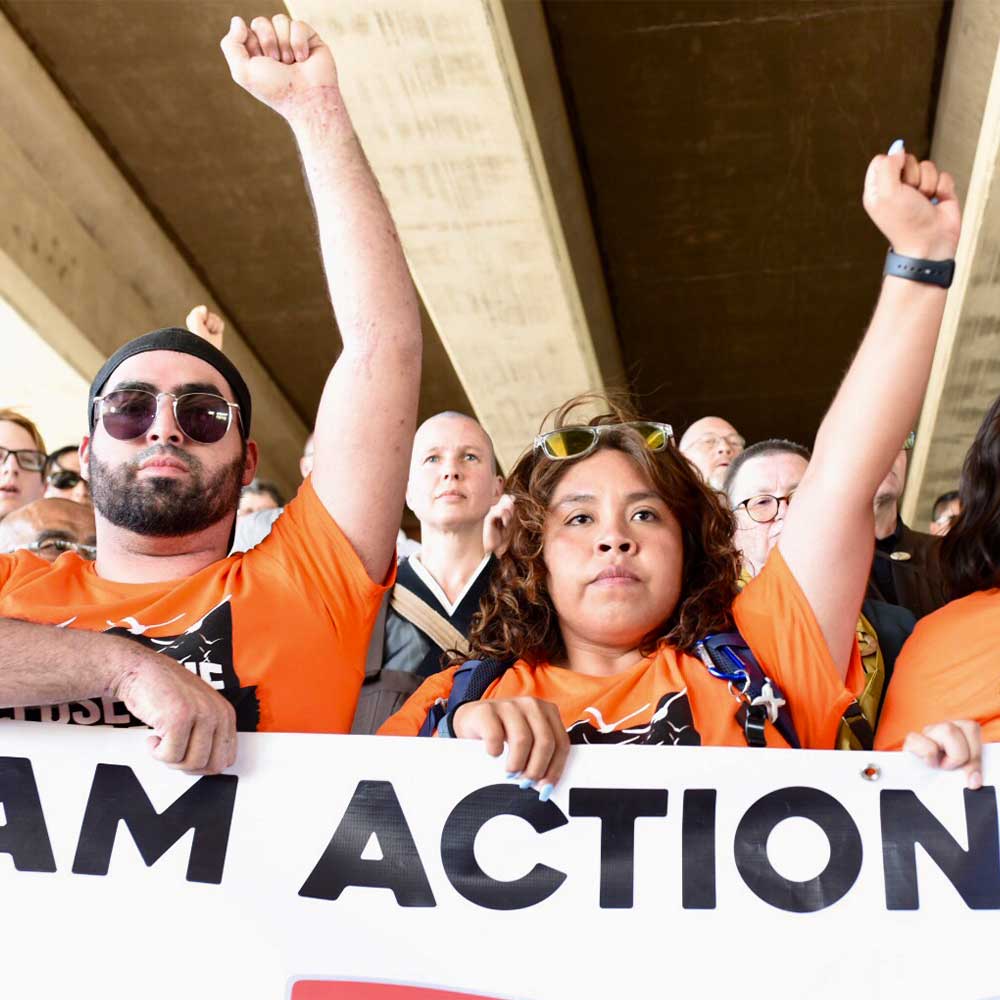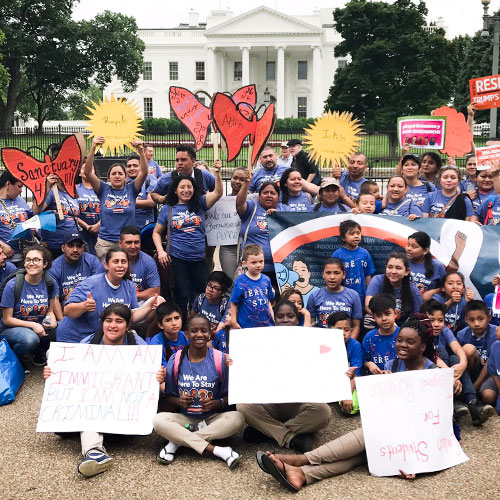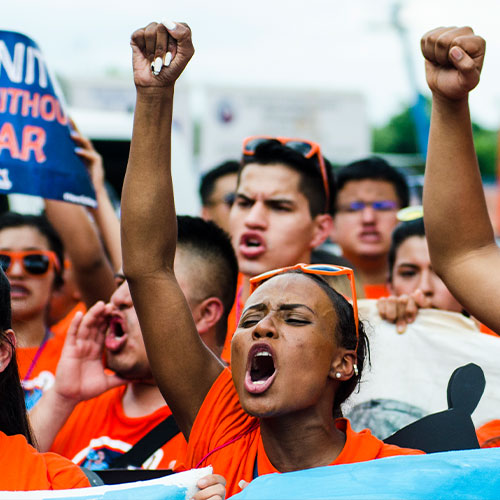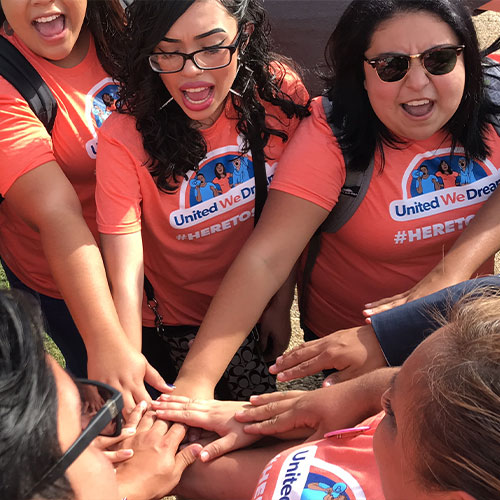Authors: TOM K. WONG, SANAA ABRAR, TOM JAWETZ, IGNACIA RODRIGUEZ KMEC, PATRICK O’SHEA, GREISA MARTINEZ ROSAS, AND PHILIP E. WOLGIN
Since it was first announced on June 15, 2012, the Deferred Action for Childhood Arrivals (DACA) policy has provided work authorization and temporary relief from deportation to approximately 822,000 undocumented young people across the United States.
From July 16 to August 7, 2018, Tom K. Wong of the University of California, San Diego; United We Dream; the National Immigration Law Center; and the Center for American Progress fielded a national survey to further analyze the experiences of DACA recipients. The study includes 1,050 DACA recipients in 41 states as well as the District of Columbia.
The first findings from the 2018 survey showed how DACA is positively affecting the lives of recipients, their families, and society more generally, as well as how much the legal and political uncertainty surrounding DACA is weighing on the minds of DACA recipients.
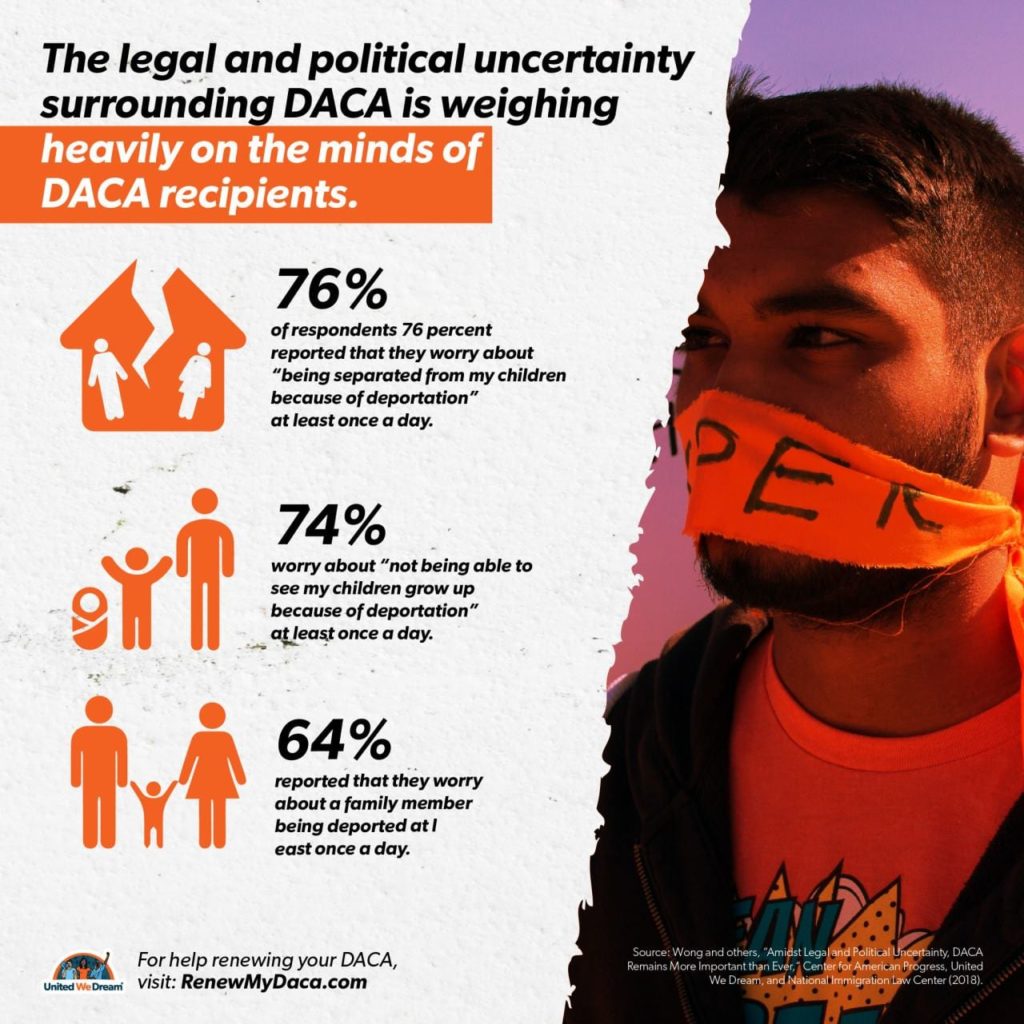
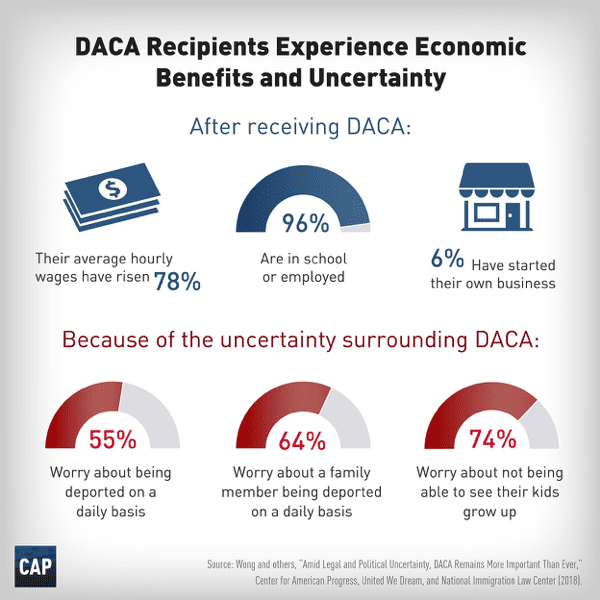
This second report shows how the lives of DACA recipients would be affected if they no longer had DACA, as well as their resolve to engage politically to fight to protect themselves and their families.
How Life Would Change Without DACA
The 2018 survey included an experiment wherein respondents were randomly assigned to one of two conditions. In the control condition, respondents were asked how likely they are to do the following:
- Report a crime that they witnessed to the police
- Report a crime that they were a victim of to the police
- Use public services (e.g., go to City Hall) that required them to give their personal contact information
- Do business (e.g. open a bank account, get a loan) that required them to give their personal contact information
- Participate in public events where police may be present
- Place their children in an after-school or day-care program
- Report wage theft by their employer
In the treatment condition, respondents were asked the same questions, but were given the prompt: “IF YOU NO LONGER HAD DACA, how likely are you to do the following?”
The results are striking. For example, in the control condition, 76.7 percent of respondents are “likely” or “very likely” to report a crime that they witnessed to the police. In the treatment condition, this percentage drops to 40.7 percent. In other words, the data show that not having DACA would result in 35.9 percent of DACA recipients being less likely to report a crime that they witnessed to the police. This difference is highly statistically significant (p < .001). In addition, 29.0 percent would be less likely to report a crime that they were a victim of to the police if they no longer had DACA (p < .001). These findings are critical: Community safety relies on the trust and participation of the entire community and when one segment of the population does not feel comfortable coming forward this can diminish public safety for all.
Moreover, 32.0 percent of DACA recipients would be less likely to use public services (e.g. go to City Hall) that required them to give their personal contact information if they no longer had DACA (p < .001); 47.9 percent would be less likely to do business (e.g., open a bank account, get a loan) that required them to give their personal contact information if they no longer had DACA (p < .001); 36.3 percent would be less likely to participate in public events where police may be present if they no longer had DACA (p < .001); 20.2 percent of those with children would be less likely to place their children in an after-school or day-care program if they no longer had DACA (p < .001); and 37.9 percent would be less likely to report wage theft by their employer if they no longer had DACA.
Waning Trust That The Government Will Keep Its Promises
In our first report from the 2018 survey, we showed how concerned DACA recipients are about the legal and political uncertainty surrounding DACA. This uncertainty has also shaken their trust in the institutions of government. Even though DACA recipients were explicitly promised that their confidential information would not be shared with ICE, only 6.6 percent of DACA recipients reported trusting the federal government “a great deal” or “a lot” when asked: “How much trust do you have that the information you provide to the federal government will not be shared with Immigration and Customs Enforcement (ICE) or Customs and Border Protection (CBP) for immigration purposes?”
DACA Recipients Are Politically Engaged and Ready to Mobilize
63.9 percent of respondents reported participating in a campaign to defend DACA during the past 12 months. An additional 34.5 percent reported participating in a campaign to stop a deportation during the past 12 months and 28.9 percent reported participating in a campaign to protest the killings of unarmed Black men and women.
Moreover, during the past 12 months:
- 35.2 percent participated in a political rally or demonstration
- 6.9 percent engaged in civil disobedience
- 40.9 percent contacted or tried to contact a member of the U.S. Senate or U.S. House of Representatives
- 69.2 percent signed a petition on the Internet about a political or social issue
- 55.1 percent sent a message or posted an update on Facebook or Twitter about a political or social issue
DACA came about in the first place because of a grassroots campaign led by immigrant youth and their allies. These results show that respondents are more, not less active and civically engaged since the rescission of DACA.
DACA Recipients Believe Their Actions Can Bring About Change
The data also show that DACA recipients believe that they can affect what the government does, not by what they say, but by what they do. When asked, “How much do public officials care about what people like you think,” just 5.8 percent responded “a great deal” or “a lot.” However, when asked, “How much can people like you affect what the government does,” 50.1 percent responded “a great deal” or “a lot.”

Conclusion
The legal and political uncertainty surrounding DACA is weighing heavily on the minds of DACA recipients. As these data further show, not having DACA would significantly impact the extent to which immigrant youth engage with, as well as trust in, public institutions, and this would have wide-ranging effects not only on the lives of DACA recipients, but also their families and their communities. Indeed, the data make clear that immigrant youth have a great deal of anxiety at the thought of having to interact with state and local law enforcement officials, as well as interact with public institutions, should DACA be eliminated.
However, the data also make clear that immigrant youth are not retreating or pulling back because of this uncertainty. DACA recipients are engaged and are taking action to protect all immigrants and people of color. Indeed, in this moment of legal and political uncertainty, immigrant youth are as resolved as ever to defend DACA.
Methodology
The survey was administered by Professor Tom K. Wong to an online panel of DACA recipients whom partner organizations recruited. Several steps were taken to account for the known sources of bias that result from such online panels. To prevent ballot stuffing—meaning one person submitting multiple responses—Professor Wong did not offer an incentive to respondents for taking the survey and used a state-of-the-art online survey platform that does not allow one IP address to submit multiple responses. To prevent spoiled ballots—meaning people responding who are not DACA recipients—Professor Wong used two validation tests for undocumented status. Multiple questions were asked about each respondent’s migratory history and DACA application history. These questions were asked at different parts of the survey. When repeated, the questions were posed using different wording. If there was agreement in the answers such that there was consistency regarding the respondent’s migratory history and DACA application history, the respondent was kept in the resulting pool of respondents. If not, the respondent was excluded.
Tom K. Wong is associate professor of political science at the University of California, San Diego and a senior fellow at the Center for American Progress. Sanaa Abrar is advocacy director at United We Dream. Tom Jawetz is vice president for Immigration Policy at the Center for American Progress. Ignacia Rodriguez Kmec is immigration policy advocate at the National Immigration Law Center. Patrick O’Shea is research and narrative strategist at the National Immigration Law Center. Greisa Martinez Rosas is deputy executive director at United We Dream. Philip E. Wolgin is managing director for Immigration Policy at the Center for American Progress.
The authors would like to thank all those who took and shared the survey for their time and effort in helping to bring these stories to light.

